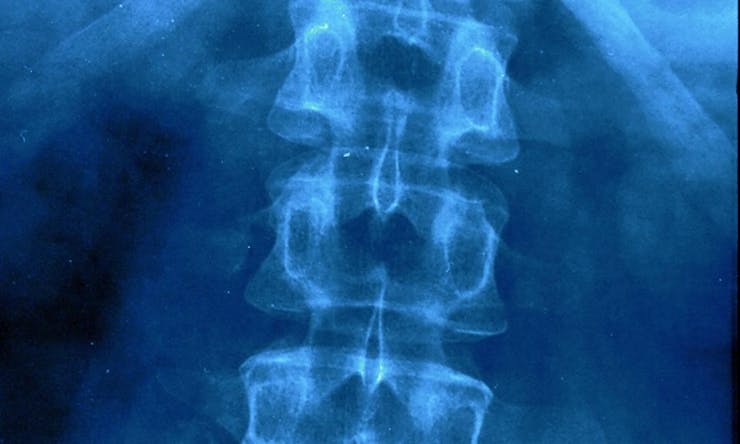Spinal cord injuries (SCI) are uncommon but can have permanent and devastating effects on one’s daily life and well-being. Research still has a long way to go in developing effective SCI medications without side effects or addictive potential. As early as the 1970s, studies began documenting cannabis’ ability to fight pain and spasticity in patients with spinal cord injury. Today medical marijuana offers patients an alternative regimen that treats these relentless and unpleasant symptoms that can take such a toll on life quality.
Spinal Cord Injury Causes and Symptoms
Severe pain, stiffness, blood clots, insomnia, uncontrollable bladder and bowel, sexual dysfunction, anxiety, and depression are just some of the symptoms that plague the day-to-day of SCI patients. Spinal cord injuries are divided into two categories: complete and incomplete. At the “complete” level, the patient experiences total function loss below the location of injury. “Incomplete” refers to a partial loss of function with varying degrees of severity between patients.
Spinal cord injuries are caused by trauma to the spine, when dislodged bone fragment, ligaments, or disc material damage the spinal tissue on impact. Unlike back injuries, spinal cord injuries affect motor functions because axons (or extensions of nerve cells that carry messages to the brain) are destroyed by the fractured or compressed vertebrae.
Living with a Spinal Cord Injury
Stuart Parsons, a military veteran of 10 years, suffers from a spinal condition called Diffuse Idiopathic Skeletal Hyperostosis (DISH). Though typically developed over time, Parsons’ DISH was caused by trauma when he was hit hard from behind in a military accident. Four of the spinal discs in his neck became fused together and pushed forward, creating pressure on the esophagus. As a result, Parsons experiences chronic pain, nausea, and eating and breathing difficulties.
The Department of Veteran Affairs (VA) urged Parsons to manage his pain using opiates, but as a recovering drug addict, Parsons adamantly refused. After some deliberation, he decided to instead try the legal medical cannabis Washington state had to offer.
“I cannot tell you how happy I am with it,” Parsons said. “I have learned so much about CBD and its painkilling properties.”
How Cannabis Can Help Treat Spinal Cord Injuries
Many more people are becoming aware of cannabis’ painkilling superpowers, but why it works so well is a story largely left untold. Research has helped piece together an understanding, but despite crystal clear results, development of cannabinoid-based medications for spinal cord injuries remains halted at the political gate.
Studies have confirmed cannabis’ ability to treat many signature symptoms of SCI including pain, spasticity, insomnia, and depression. Some improvement in bladder and bowel control has also been noted. Cannabinoids, the medicinal compounds found in cannabis, are what offer this amazing diversity of symptom relief to SCI patients.
Shop highly rated dispensaries near you
Showing you dispensaries nearCannabidiol (CBD), the compound mentioned by Parsons, is slowly but surely becoming a name in the arena of pain relievers. Studies have not only demonstrated CBD’s remarkable painkilling properties, but also its ability to reduce spasticity and improved motor function in SCI patients.
Tetrahydrocannabinol (THC), though stereotyped as marijuana’s “psychoactive stoner” compound, carries its own medical value in treating spinal cord injuries. Various studies show that THC improves many SCI symptoms including pain, spasticity, bladder control, and insomnia.
It’s clear that cannabis, even in its raw form, is providing patients with safe relief of SCI symptoms. Other research monitoring the restoration of nerve function and growth of new cells by cannabis compounds is further brightening futures for people living with chronic pain and other conditions. How long patients will be waiting for factual information and improved cannabis policy, however, is unknown.





